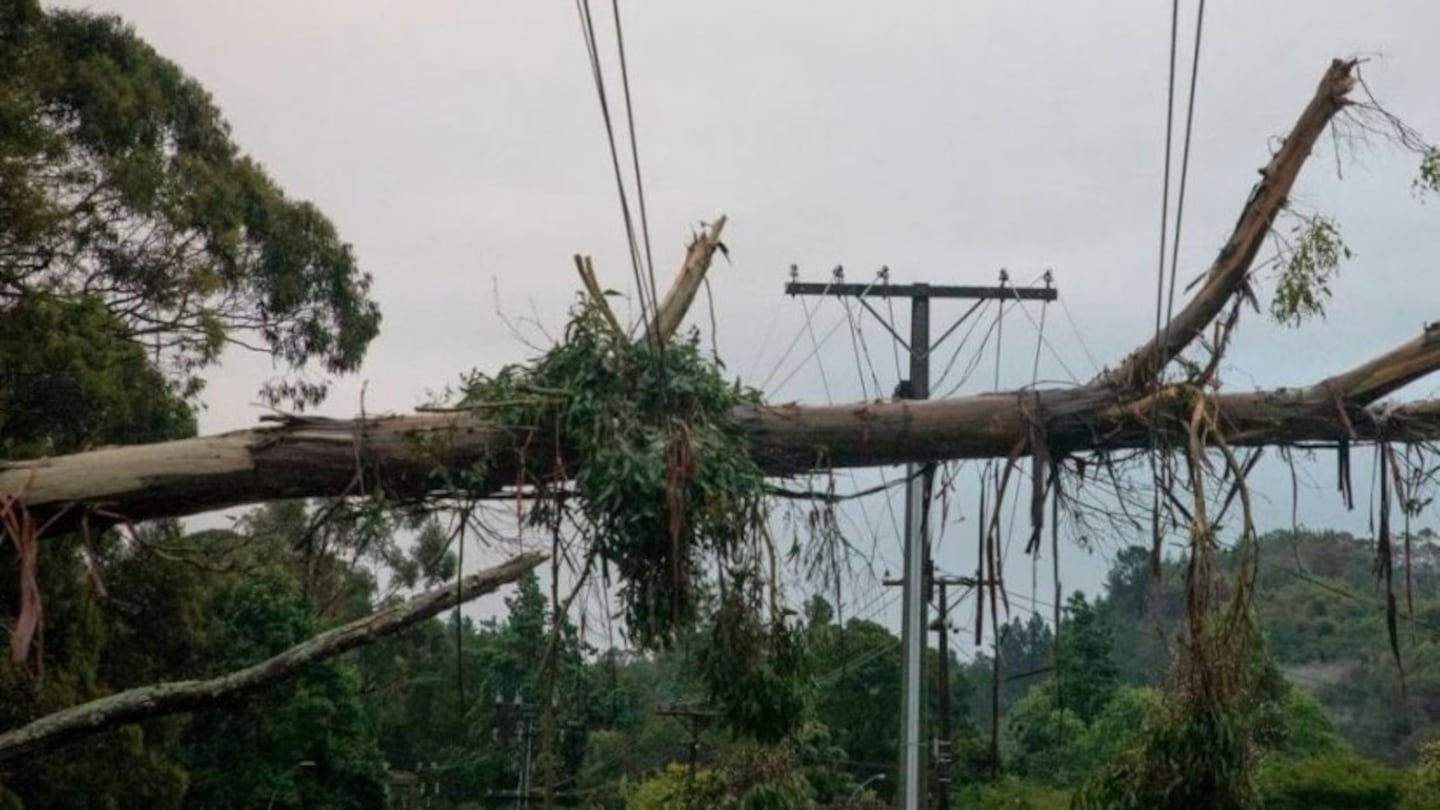A tree fallen over a road and power lines, caused by Cyclone Gabrielle. Photo / Andrew Warner / NZME
A new study conducted by researchers from the University of Canterbury (UC) is investigating the potential benefits of microgrid technology for remote communities and marae.
In the wake of the wrath of Cyclone Gabrille which struck Aotearoa in early 2023 causing widespread power outages, UC researchers are exploring microgrids as a solution to enhance power generation reliability, resilience and cleanliness.
Microgrids are compact versions of the national power supply system that can be installed in individual homes and businesses. They enable whenua owners to generate and store power locally, reducing reliance on the national grid.
"Microgrids are seen as a key tool in enabling renewable energy, but it is the development of microgrid control that is crucial to unlocking their full potential," explains Dr. Jeremy Watson, leading the research team from UC's School of Electrical and Computer Engineering.
The study focuses on creating new 'controllers' which manages where energy comes from and how it's stored, necessary given the wind doesn't always blow, the sun doesn't always shine and rivers might not flow, when energy is needed.
Researchers want to design a 'plug-and-play' approach which would help communities group their resource together affordably and affectively, in line with the government's goal of achieving 100% renewable electricity in Aotearoa New Zealand by 2030.
In addition to independent energy generation, the deployment of microgrids in remote communities can reduce reliance on the national power grid, ensuring a consistent power supply and faster restoration during crises the researchers say.
Professor Neville Watson, another key contributor to the study emphasizes the importance of a reliable energy grid for achieving New Zealand's energy goals by 2050.
"We need to be working on cohesive and enabling solutions for achieving low emissions, for which electricity will be our primary energy medium," states Watson.
The research team believes that the successful adoption of microgrids in local communities will contribute to New Zealand's leadership in future energy systems.
One such local venture is Aotea Energy, created by Tama Toki, founder of skincare products company Aotea, which recently got picked up to supply Air New Zealand's in-service wellness products.
Toki who grew up on off-grid Aotea, Great Barrier Island says his company is bringing island ingenuity to scale, with the company currently developing localised, in-home battery storage.
With the global microgrid market projected to reach a value of $47.4 billion by 2026, the researchers say there's an opportunity for New Zealand companies to export their expertise and technologies, fostering economic growth and facilitating the transition to renewable and resilient electricity generation.
Dr. Watson expressed enthusiasm for the research's potential impact, saying at least two postgraduate students will join the team too.
"I like the technical problem, the challenge."
"[We're] learning and developing solutions at the grassroots"
"There's got to be a better way." he added.


